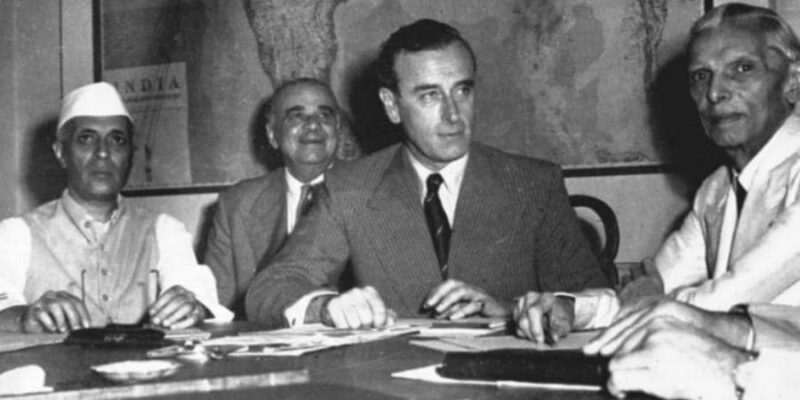
The Hasty Partition of India
On August 15, 1947, India gained independence from British rule. The transition, however, was marred by the rapid and contentious partition of the country into two separate nations: India and Pakistan. Lord Mountbatten, the last British Viceroy of India, was at the helm of this process. Despite his public statements expressing a preference for a unified India, he was forced to expedite the partition, resulting in widespread violence and the displacement of millions.
Cyril Radcliffe’s Role
Lord Mountbatten appointed Sir Cyril Radcliffe, a British lawyer with no prior experience in India, to oversee the demarcation of the new borders. Radcliffe was given a mere 36 days to complete this monumental task. His unfamiliarity with the region and its complex social fabric added to the challenge.
Radcliffe’s task was to draw a boundary that would separate the Hindu-majority areas from the Muslim-majority areas. His decisions, made under immense political pressure, were controversial and led to significant long-term consequences for both India and Pakistan.
Controversies and Political Pressures
Radcliffe’s work was conducted under intense scrutiny and political pressure from both Indian and Pakistani leaders. According to Kuldip Nayar’s book Scoop, Radcliffe later admitted that he believed Lahore, a major cultural center with a significant Hindu and Sikh population, should have been part of India. However, he ultimately assigned it to Pakistan, reasoning that India already had Calcutta and that Pakistan needed a major city.
Radcliffe’s decisions were further complicated by the need to address the strategic importance of areas such as Ferozepur and Gurdaspur, which were critical for India’s irrigation and its connection to Kashmir. Allegations emerged that Mountbatten and other British officials exerted pressure on Radcliffe to adjust the boundaries in favor of India. Radcliffe himself claimed that his final report, submitted on August 13, 1947, was revised under this political influence.
Radcliffe’s Legacy
Sir Cyril Radcliffe never revisited India after completing his task. He declined the £5,000 fee for his services and expressed regret about the partition’s outcomes. In a notable interview, Radcliffe stated, “God forbid. Not even if they asked me. I suspect they would shoot me out of hand—both sides.”
Radcliffe’s work has left a lasting impact on Indo-Pakistani relations, illustrating the difficulties and political complexities involved in the partition process. His decisions continue to influence the geopolitical landscape of the region, reflecting the challenges of drawing borders in a divided and turbulent period.




